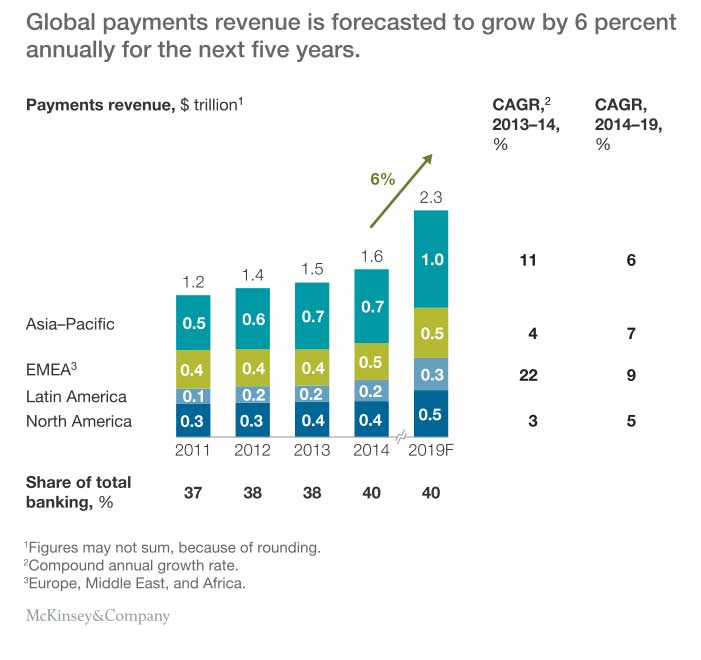The insurance industry—traditionally cautious, heavily regulated, and accustomed to incremental change—confronts a radical shift in the age of automation. With the rise of digitization and machine learning, insurance activities are becoming more automatable and the need to attract and retain employees with digital expertise is becoming more critical.
Our colleagues at the McKinsey Global Institute (MGI) have been exploring the implications of workplace automation across multiple industries. Although their preliminary report cautions that “activities” differ from “occupations” (the latter being an aggregate of the former), it presents some stark conclusions: for example, automation will probably change the vast majority of occupations, and up to 45 percent of all work activities in the United States, where MGI performed its analysis, can be automated right now with current technology.1 This figure does not reflect the precise automation potential for each of these specific occupations, because activities are scattered across them, and different activities will be automated at different rates. But significant changes are clearly approaching in many industries, including insurance, whose potential for automation resembles that of the economy as a whole.
We’ve been studying the impact of automation on insurers from another angle. Drawing on our proprietary insurance-cost and full-time-equivalent (FTE) benchmarking database, we focused on Western European insurers, forecast the outcomes for about 20 discrete corporate functions, and aggregated the results.2 Our work indicates that some roles will undoubtedly change markedly and that certain occupations are particularly prone to layoffs; positions in operations and administrative support are especially likely to be consolidated or replaced. The extent of the effect differs by market, product group, and capacity for automation.
Steeper declines will occur in more saturated markets, products with declining business volumes, and, of course, the more predictable and repeatable positions, including those in IT. Other roles, however, will experience a net gain in numbers, especially those concentrating on tasks with a higher value added. The broader corporate functions including these roles will lose jobs overall. But some positions will be engines of job creation—these include marketing and sales support for digital channels and newly created analytics teams tasked with detecting fraud, creating “next best” offers, and smart claims avoidance. To meet these challenges, insurers will need to source, develop, and retain workers with skills in areas such as advanced analytics and agile software development; experience in emerging and web-based technologies; and the ability to translate such capabilities into customer-minded and business-relevant conclusions and results.
The net effect of such position-by-position changes is harder to determine with certainty. Numerous variables affect each role’s outcome—whether job creation or contraction—which means that the sum of these potential outcomes could shift significantly. To analyze these outcomes, we have factored in variable growth rates across separate regions and product groups, as well as the possibility of increasing cost pressures (including those arising from a low-interest-rate environment). Our most probable outcome for insurers sees up to 25 percent of full-time positions consolidated or reduced as a net aggregate, occurring at different rates for different roles over a period of about a decade.
That’s neither a negligible amount of job loss nor an unimaginably distant time frame. On the contrary, given the magnitude of these changes and the looming future, it’s important that insurers begin to rethink their priorities right now. These should include retraining and redeploying the talent they currently have, identifying critical new skills to insource, and retuning value propositions in the war for new talent and capabilities. That competition will almost certainly increase as the digital transformation takes hold. The first waves are already hitting the beach.

